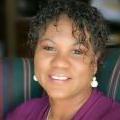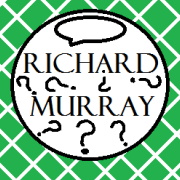-
Posts
4,192 -
Joined
-
Last visited
-
Days Won
121
richardmurray's Achievements
Single Status Update
See all updates by richardmurray
-
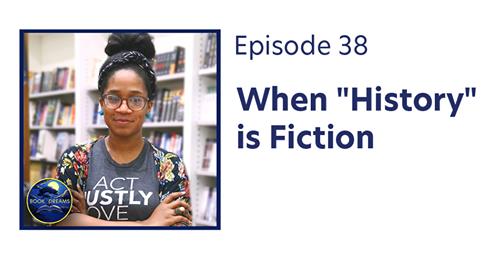
My thoughts as I listen to Episode 38 , when history of fiction of the BookDreams Podcast, Bethany C Morrow
1:45 they say this interview deals with the challenges of speculative fiction writing when it comes to race
3:03 the ask about her new book related to little women
Morrow calls the book a remix. Morrow speaks on elements that signify her book relates to Little Women. Her books plot or characterizations is not similar. She says she never liked Lorie.
Her book is on roanoke island, free people of color, before civil war.
5:11 Morrow uses the word strange to describe the temporal period in the usa when you have black people in a state in the union that are free while other black people are enslaved. She used the word strange. Strange to some in modernity but to few in the past. Slavery must be comprehended as something that has not ended, never ended in humanity. Slavery exist today. It is a modern mythology that slavery died. Slavery no longer became legal in western european governments but that does not mean slavery ended in humanity. I argue slavery is alive and kicking. So having a people be one part enslaved while the other part free was not a strange thing for people in the past, in most places in humanity and even today it isn't strange. You take the usa out of the equation and I think slavery in various ways shows a permanence. So, I think the phrase, Statian Estrangement is better than strange. The issue of this talk, which I have not fully heard while typing this comment is about history in fiction. I think sometimes we all like to see what we want to see.
5:26 she is tired by the strict dichotomy of union / confederates by white authors. Though I think people today don't know how tribal that war was, based on the after years. The often used phrase, brother faced brother was real. The best way to explain the war between the states from a white perspective is the presidencies of Obama AND Trump. In both presidencies , white families grew/gained/were destroyed by internal splits based on the existence/narrative/identity of either president. She should had focused on the variance between usa history based on who you are. THe USA has three elemental groups: Indigenous or Native, White, Black . The Indigenous group is not a phenotypical group, it is a group of ancestry. White or Black is phenotypical. Now in modernity , all three of these groups have a much more complex internal makeup than during the war between the states. But, each group mentioned had a varying relationship to the war between the states. For Whites it was, kin vs kin. Thus why , the daughters of the american revolution had such momentum in the white community in the usa for their historical narrative. White people wanted the war between the states to never happen again and white unity, no matter the cost, was their tool. But for black people, that same war was not even a balance. Again, most black people lived in the confederate states. when I say most I mean circa ninety percent. Sequentially, the choice of Morrow to use a free black colony as the base for her little women is not historically false, but not historically common, for black people. IF her imagination could had figured out a little women based in the confederacy, based in a plantation life, it will be more common to black people's experiences back then. She used the word strange. Most black people circa Civil War of the USA , found free black communities strange.
6:02 She says that she was never taught about free black communities growing up. But, the question is where? Did she mean in public school or in her home or in community school programs? As a kid I don't recall free black communities getting a note in the history book. BUT, I recall in my home my parents, both of whom are black, taught me their existence. In addition, I recall, an after school program <No I am not going into my life> where we learned various aspects of black culture. What is my point? Too many black artists talk about not getting black history or true history in the white controlled public school system. But I argue that black parents have to do better. My parents, I love them, but don't tell me what they did was special or some sort of grand leap. I will not accept that.
6:16 She refers to modern black artists utilizing speculative fiction in video media to tell true history. She refers to how many black people achieved their first glimpse of Tulsa Oklahoma through the Watchmen cable show. Again, I am not suggesting she is wrong in what happened. But, the problem is black parenting. She asks a question? how could you not know? the answer is simple, black mommy plus daddy failed. But they are not alone, Black grandmommy plus granddaddy failed. Any human being should know their forebears or their people's history. I do not mean you need to be a historian or conjecture on history. But, any human need to know their particular people's history. And hoping or relying on a public school system to do that or wanting it to do that, is the first problem. PArents get busy.
6:36 She refers to how sun down towns became a noted thing after Lovecraft country. Though I must add, in this point, another set of parents need to be blamed. I just said any human need to know their own groups or tribes or clans history. But I was also raised to comprehend the history of others. I recall in a show about the Statian South , organized by Henry Louis Gates jr. while shown on PBS, a white woman said, I paraphrase:"I didn't know my grandfather too well, he was just this guy who gave me candy and was always nice, I didn't know he ran the chaingangs and were taking people illegally to do it" . What is my point? Most people don't like to concern themselves with the history of other people's groups. Most people know the groups they are not in but rarely show interest or have interest to their history. And as the white woman I am speaking of displayed, it starts from youth. Being multicultural is more than a word or holidays or months, it is living a life where you desire to know more about every human culture. That is a rare mentality. It is one being fermented in the USA somewhat by a growing group, but it isn't natural in humanity.
6:58 She states her book has a similar role to lovecraft country or the watchmen hbo show in that it is meant to be entertainment but it has elements of history not advertised loudly, in this case, free people colonies in the usa pre war between the states.
7:15 Morrow see's her work as historical fiction , not speculative. She feels most readers will feel it is speculative.
8:05 One of the interviewers ask, aside the black community, the lgbtq+ community using speculative fiction to highlight moments in history not widely advertised, so it something positive that the current story isn't speculative.
Morrow reply, she is coming through Little Women, an established property , not merely historical fiction.
8:55 Morrow says we, including herself absent her impotency, the people in the USA are about myth , myth building, not history. I concur but I argue the why is important. It is the same reason why most black people don't know about the Black people who fought for Great Britain against the USA's founding. Why? Cause most black people who live in the USA want to raise their children to not villify or criminalize the place and spreading the history of the black people who fought against the creation of the usa, doesn't help that. So the myth that non violence is the black way forever is presented.
9:29 The Tiffany dillema she describes. I didn't know it myself. She says, when people write books about europe of the past recent centuries, they will use the name tiffany for female characters and readers will reject the use of the name cause they think tiffany is a modern name, when in truth it was common. Her point is valid, going against commonly accepted narrative is hard.
10:13 Why was Morrow drawn to Historical speculative fiction for her first work?
Her reply is, writers don't always plan things first. Then she describes her formulation to her book Mem.
12:36 she found a case in canada where women were not considered persons by law.
13:14 She states that many of the technological changes and their problems had a larger fatality in the late 1800s early 1900s than the modern internet or similar technologies humanity is learning to live with.I concur, I think the agrarian lifestyle, which by default is gentler, though harder to live, made the industrialization explosions more explosive.
SKip by 14:45 to 17:05
18:05 One of the host speak of the limitations of human imagination. She remembers painters in madrid who never were to jerusalem but made paintings of jerusalem. I quote one of the host: "Sometimes when we assume we are being creative we are tied to what we know" this is true, this is why , the formative years are vital in shaping up and why who controls those years, ala parents is vital.
18:31 West Side Story/ Clueless plus others are offered as examples of historical fiction remix... the hosts ask about the danger for black writers for doing what is common.
Morrow has a book coming out. So many beginnings, not out till september of 2021. Morrow hasn't finished it/ it isn't reviewed. They found two reviews, to a book not finished or published , that I paraphrase them as saying: is poisonously racists.
19:49 The interviewers ask, what books have influenced Morrow more than others. Morrow ask another a question. Where did she connect herself as a black american in the literature?
She found Toni Morrison. My mother's storytelling was the first for me. Unlike Morrow , who went to christian schools or Morrow's son that went to mostly white schools as she lived or lived in a white village, I went to black schools.
I think black people who live amongst whites, have to realize the solution for black people that lives amongst blacks is not the same, even though both black groups live in the usa.
She found in Toni Morrison, who grew up in white lorain ohio, someone who shared her voice; Morrow's white teachers growing up didn't think was Morrow's.
23:45 THe interviewers quote Morrow from the article Medium. They asked her did she think of the quote when she wrote, a song below water. Morrow says the book is for everyone but to Black American girls.
24:35 Morrow says, I paraphrase: "I don't have to balance being a women while being a black woman, the question comes from the questioners perspective. I am these things, I am not balancing these things."
25:20 An interviewer asks about a character , a song below water. Science fiction , from Morrow, likes to use allegorical bigotry; it teaches empathy by assigning the real wordl oppressed to be the oppressor. She should had mentioned the Birth of Nation , wild black man from south carolina congress.
27:50 that ends it, good end thoughts
https://www.bookdreamspodcast.com/episodes/2vusxd0zs8hwj30y2o77oooyj3cpt6




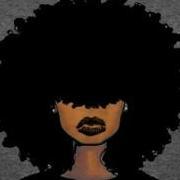


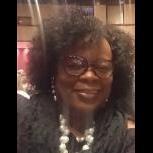
.thumb.jpg.ed52910791d00308abb8c218695bec88.jpg)
